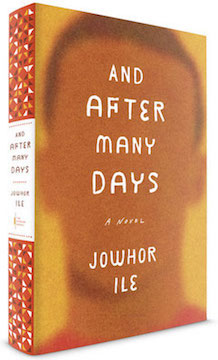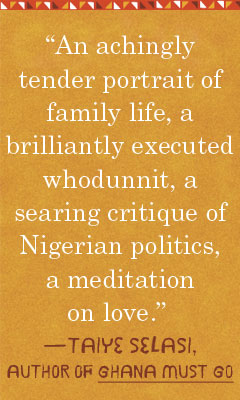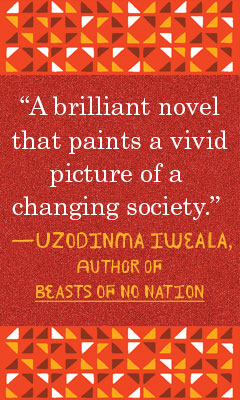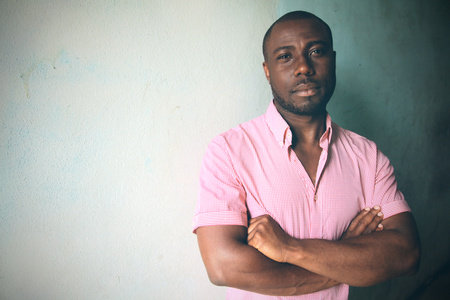And After Many Days
by Jowhor Ile
As Jowhor Ile's debut novel, And After Many Days, opens, 17-year-old Paul Utu leaves his home in the city of Port Harcourt, Nigeria, to visit a neighborhood friend. When night falls and he still hasn't returned, his mother and father mask their unease with optimism, assuring themselves he'll be back any minute, or at least by morning.
Paul fails to appear the next day or the day after that, leaving his parents and his younger siblings--brother Ajie and sister Bibi--in a state of disbelief and confusion. "They sensed something had gone wrong, but it was new, whatever it was, so no one knew how to hold it properly. Not Paul, everyone thought." The exemplary firstborn, Paul had never given his parents a reason to worry. He was the least scolded of their three children and the one most commended by his teachers.
As the hours and days tick by, Paul's waiting family members are "like the pendulum on their parlor wall," emotions swinging back and forth between dread and hope. Ile deftly draws readers into their shifting world to bear heartbreaking witness to the slowly dawning recognition that Paul has indeed vanished from their lives, seemingly without a trace. After a television appeal for information fails to yield any leads and the police turn up nothing, they no longer vacillate between fear and hope. Instead there is "just horror and dread."
Several days into Paul's disappearance during the 1995 rainy season, Ile takes readers back in time, chronicling the years leading up to that mysterious and catastrophic event through Ajie's recollections. The youngest of the three Utu children, 13-year-old Ajie is the last person in the family to see and speak with Paul, a distinction that carries with it a burden of guilt, a feeling that "rose like tidewater up to his chest and made breathing very difficult." It also casts him in an uncomfortable role in this strange new family drama, and he's repeatedly asked about his final encounter with his brother. "They always returned to that moment and settled on it as if the mystery had to be unearthed from there," says Ajie.
Rather than unfolding And After Many Days as a traditional narrative, the chapters are vignette-like. Together they create a portrait of a loving family--the occasional sibling squabble aside--headed by supportive parents Benedict, a lawyer (whose kids affectionately call him Bendic), and Ma, a biology teacher and vice-principal of a boys' school. The day of Paul's disappearance dawns like any other, with no hint of the disastrous turn it will take.
Outside the Utus' happy home is a country with a tumultuous legacy of political and social strife--corrupt officials pocketing bribes, flare-ups between ethnic communities, riots, student demonstrations and false arrests. A young male relative of the Utus was once roughed up by the military regime without cause in the family's ancestral village, where some residents staunchly support the presence of a large oil company in the region and others are passionately against it. Violence is not uncommon and neither is having loved ones go missing. Heads of state have been known to make people disappear, and even Bendic was detained for a time. Two and a half decades earlier, during a civil war, he was wrongly accused of being a spy for the Nigeria side, taken away by rebel authorities and imprisoned. For months his family didn't know his whereabouts or even if he was still alive; erroneous reports surfaced that he had been executed.
When Paul disappears, Bendic and Ma have no idea if it was an accident or the result of something more sinister, or whether it has anything to do with Bendic's involvement in mediating between citizens and the government. A champion of giving voice to the powerless, Bendic took the federal government to court after the explosion of an oil well left farmers' lands, and their livelihoods, submerged in crude oil. Regardless of the cause, the pain of Paul's absence, heightened by the uncertainty surrounding it, "would come to project itself, harsh and relentless, like a whistle at midnight. It would be the question mark hovering above the sentence of their lives, never knowing where to settle." Nearly 5,000 days pass before the Utus finally know anything about Paul's fate.
And After Many Days is an impressive debut, beautifully written and infused with an element of mystery that keeps pace throughout the story. A native of Nigeria, Ile draws on real-life history and events to create a searing tale that juxtaposes the greater landscape of a nation in turmoil with one family's personal loss, rendered through characters that are distinct yet familiar. At the novel's heart is a universality that transcends time and place: the loss of a child and the wrenching toll it takes on the loved ones left with the unfillable void. --Shannon McKenna Schmidt









